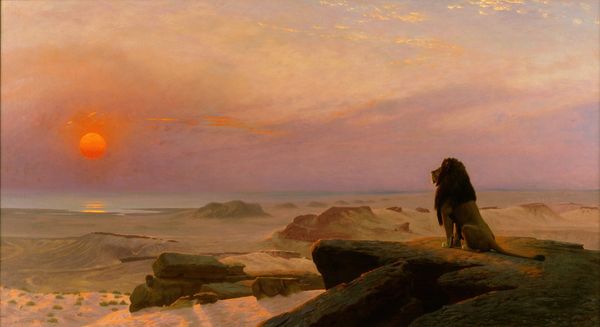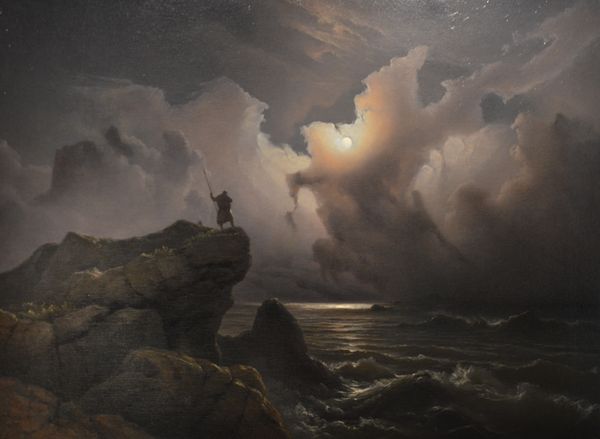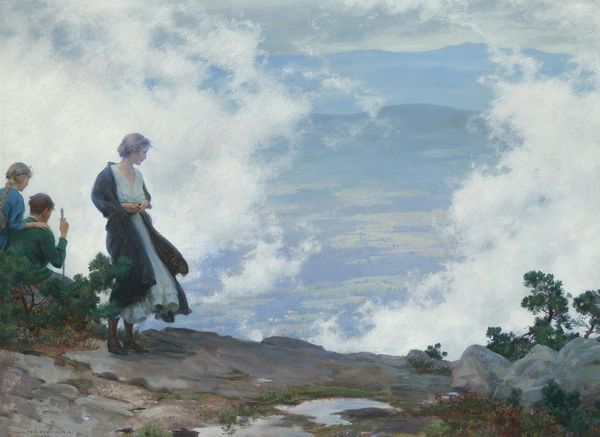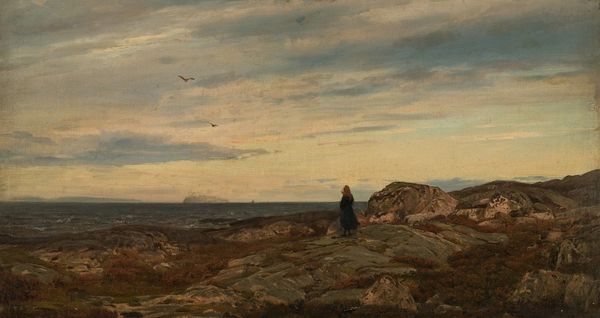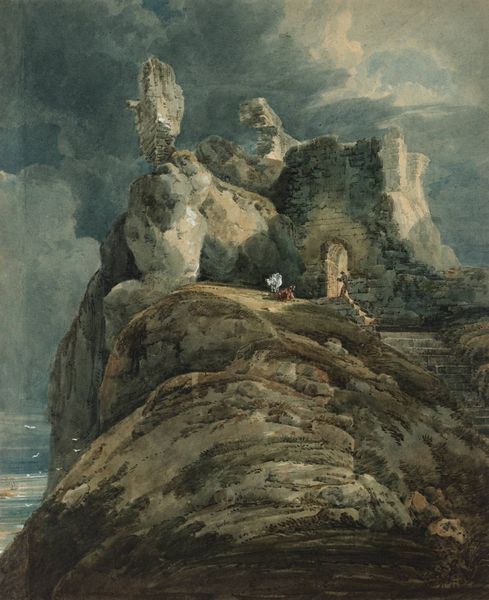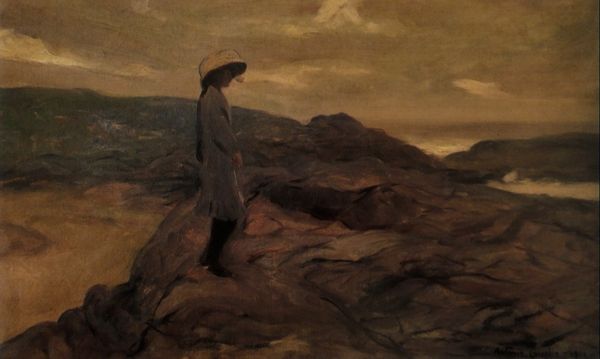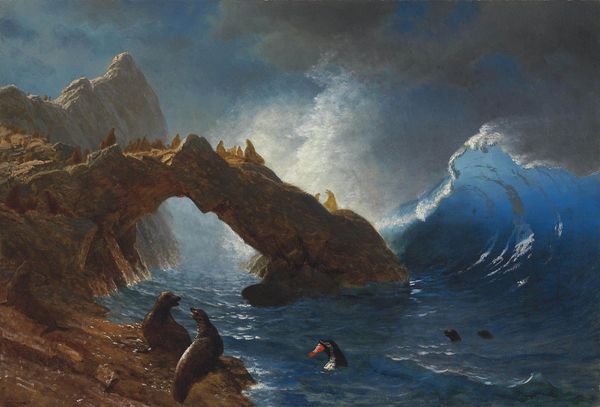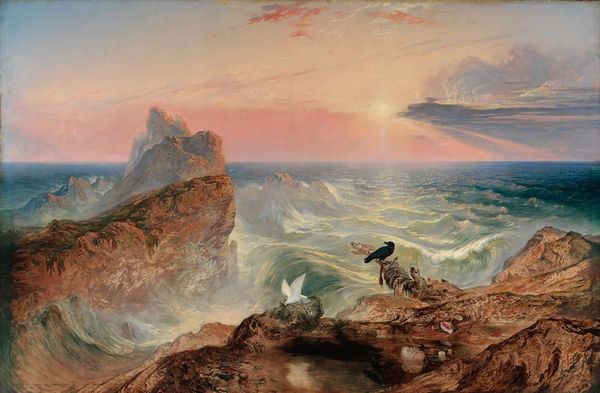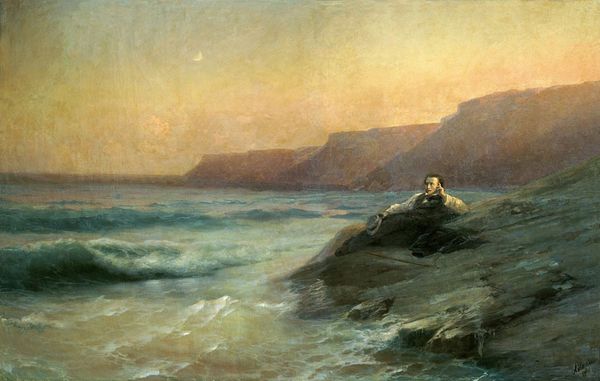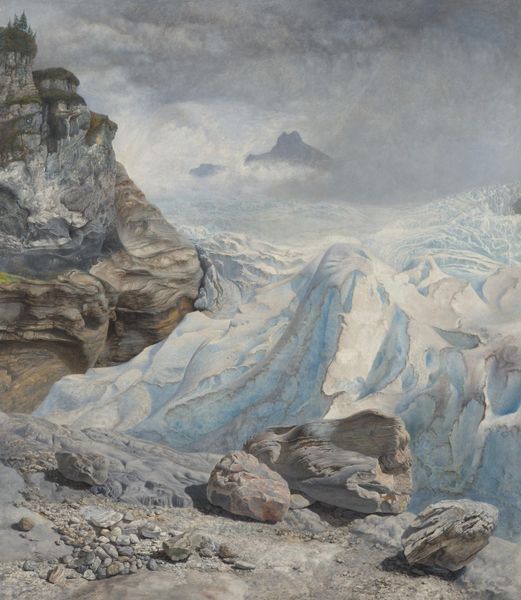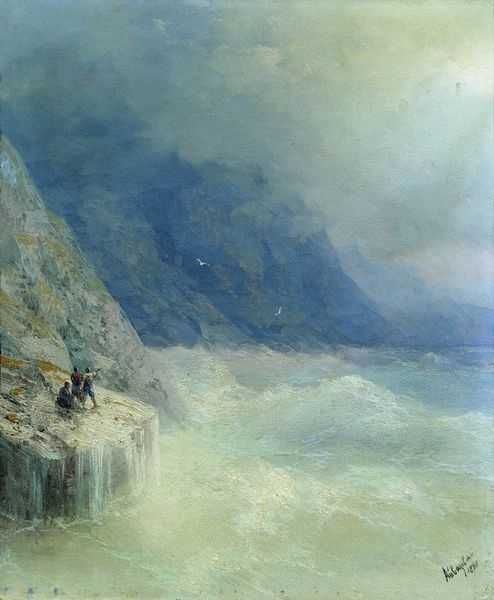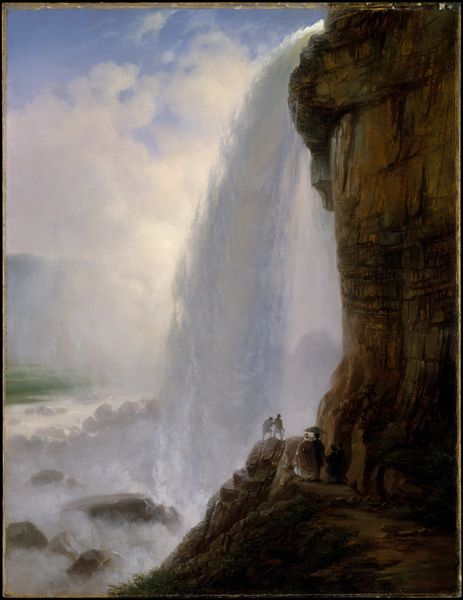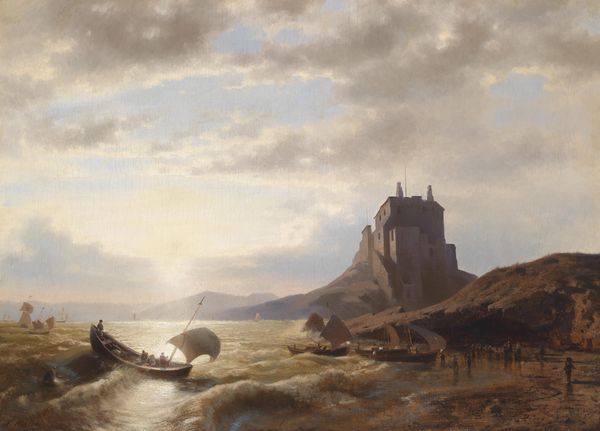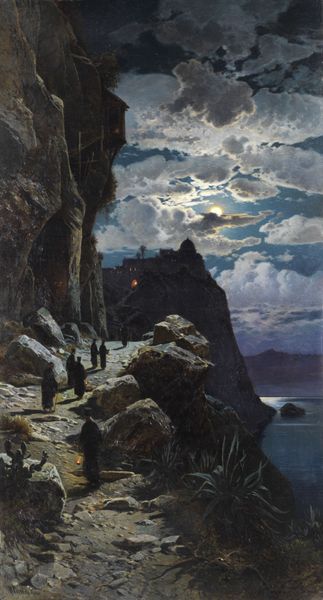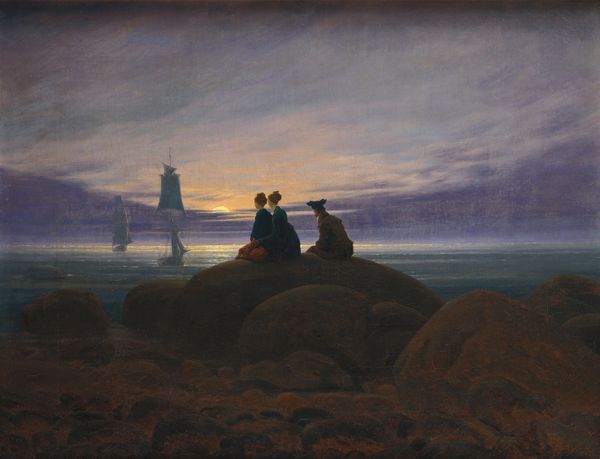
The Wanderer Above the Sea of Fog 1818
0:00
0:00
caspardavidfriedrich
Kunsthalle Hamburg, Hamburg, Germany
painting, oil-paint
#
portrait
#
sky
#
painting
#
oil-paint
#
landscape
#
figuration
#
oil painting
#
romanticism
#
mountain
#
cloud
#
men
#
realism
Dimensions: 94.8 x 74.8 cm
Copyright: Public domain
Curator: This is Caspar David Friedrich's celebrated "The Wanderer Above the Sea of Fog," created around 1818 using oil paints, and held here at the Kunsthalle Hamburg. A fairly typical size for him, actually. Curator: It’s evocative, certainly. I find the subdued palette almost suffocating. All those greys and browns – it feels like the weight of melancholy embodied. Curator: Look at the surface texture; see the layered application of paint. Note how Friedrich builds depth. We see distinct planes that give a panoramic view which places this lone figure within a vast natural scene. How was the paint itself manufactured at that time, who mixed these hues? Curator: Interesting considerations, yes. I see instead a powerful commentary on individuality versus the sublime. The figure, a man, is poised between worlds. The Romantic era’s focus on the individual is really striking here, especially since this was post-Napoleonic Europe and ideas about nationalism were forming. The fact we see the wanderer from the back invites us to inhabit that very sense of longing and contemplation as well. Who does the landscape welcome, who does it turn away? Curator: Indeed! Romanticism prized this notion of the individual genius encountering the awesome force of untamed nature. But to access it involved material constraints: brushes had to be produced, canvas stretched and primed in a studio… Friedrich also employed assistants who helped grind his pigments! Curator: Right. And whose labor are we overlooking there? He's literally standing on top of it. The privilege in that vantage point cannot be ignored. Is it simply an innocent exploration of nature? Or an assertion of dominance and the patriarchal gaze, reflecting the social structures of his time? We must ask, what ideologies does it conceal within that picturesque scene? Curator: So, Friedrich has this great facility with conveying depth and space… What you're saying is we need to understand what systems gave him access to the mountainside at all! Thanks to industrial advances he and those who came to acquire this work had the economic means of mobility, exploration and ownership of paintings in domestic settings. Curator: Precisely! It's not merely about aesthetic experience. It's about interrogating how art reinforces power dynamics. Reflecting on whose voices are amplified while others are silenced... that informs how we contextualize “The Wanderer” today. Curator: It certainly gives one much to contemplate beyond a nice vista… I now want to study further the industrial-based wealth of Friedrich's patrons. Curator: Me too! I'll reflect now how the landscapes serve to mirror both internal struggles and broader social issues about identity.
